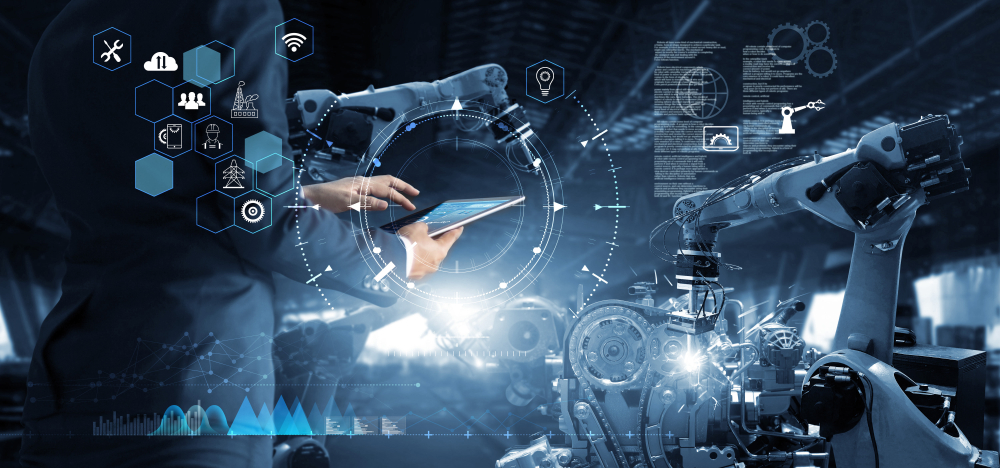Various technological advancements, coupled with the advent of digitization has had a domino effect on how manufacturing is approached. However, there’s more to it than what meets the eye when it comes to Smart Manufacturing. Today, it is more than just a buzzword and is fast becoming a business imperative. If you are a business leader, understanding the key implications of smart manufacturing technologies will allow you to stay ahead of the curve. It is an assortment of technologies that is establishing new conventions.
For many organizations, this transition isn’t particularly easy; so how can companies successfully leverage smart manufacturing and start reaping its benefits? How can it enable companies to deal with future turmoil better? These are questions that have spurred India’s manufacturing to focus on greater innovation, resilience, and agility to survive future tempests and prevent the descent into a maelstrom of uncertainty.
[box type=”success” align=”” class=”” width=””]Speaking at The Economic Times Smart Manufacturing Summit 2021, Amitabh Kant, Chief Executive Officer, NITI Aayog asserts that infrastructure development plays a critical role towards enhancing growth prospects and building a new and upgraded infrastructure will be the key to raising India’s competitiveness. It will also be critical to the success of the ‘Make In India’ plan. The COVID-19 pandemic has been extremely disruptive for economic and human life across the globe; at the same time, it has presented us with a unique opportunity and can be leveraged to build back differently and innovatively. [/box]
Today, artificial intelligence alone is having a profound impact on transformation efforts. This is why 8 out of the top 10 companies are tech and digital companies. A Forrester survey further consolidates this view as 71% of respondents in the survey reckon that AI can enhance company efficiency, while 59% believe it can boost scalability. Furthermore, 55% of respondents believe AI may benefit in the prediction of customer behaviour, resulting in the development of better products and services.
Stuart Hughes, Chief Information & Digital Officer, Rolls-Royce Plc highlights that whenever there are discussions about artificial intelligence, a certain demographic is afraid about their jobs where some others are more concerned and not too sure about how to feel. It sounds like magic to them. The most important part as a company is to understand the people, their questions, the impact on people, and the company’s ethics. Managing people is the most critical part of managing cultural change.
Companies and governments are expected to play a critical role in ensuring that a technology-enabled industrial transition goes smoothly. By 2025, the World Economic Forum forecasts that 85 million jobs would be lost and 97 million new employment will be created across 26 nations with the technological transition in which AI is at the forefront.
The technological transition for industries is undoubtedly not going to be easy.
[tie_slideshow]
[tie_slide] Expert Opinion | Vivekanand Manjeri, Director Client Solutions Group, Dell Technologies observes that it’s important to understand the key challenges that exist within the manufacturing sector. Most business leaders are tasked with various costs on a daily basis: They have to minimize operational overheads and maintenance costs. But there is always an opportunity to connect data and processes to generate meaningful outcomes. There is an awareness that if one’s organization does not transform the way they operate, if it is not digitally native, then there is a good chance that their organization will get disrupted. Measuring and allocating assets in the right way is extremely important. [/tie_slide]
[tie_slide] Expert Opinion | Karsten Mueller, Executive Vice President Manufacturing & Quality, Bosch highlights that before the idea of becoming a digitally-driven and document-free company, there is a need to understand the IT infrastructure and then prepare the competitiveness and enable people to transform for digital and future-oriented work as well. A clear focus on business requirements while enabling data-driven improvement and data transparency is one of the key aspects for a future-ready factory. [/tie_slide]
[tie_slide] Expert Opinion | Today, there are several mega-trends that have accelerated the transformation towards smart manufacturing. Shedding light on these, Mourad Tamoud, Executive Vice President, Global Supply Chain, Schneider Electric states that Several accelerating mega-trends like customer personalization, climate crisis and sustainability, call for agility, etc. are profoundly re-shaping the end-to-end supply chain. The Indian manufacturing industry is becoming a real engine for economic growth and jobs in the country. This industry has become central in the post covid recovery of India. Indian manufacturing value chains are reaching global competitiveness and are well-positioned for that. [/tie_slide]
[/tie_slideshow]
The unprecedented disruption in manufacturing, supply, and value chains is changing the very fabric of what is possible in industries. It brings with it a doorway to a new reality where significantly improved efficiency and efficacy across business operations will become imperative. With smart manufacturing, a new canvas for India’s manufacturing sector will be created that will spark its eventual economic recovery while spurring its growth story to new heights.



